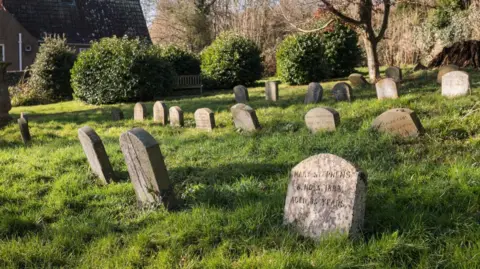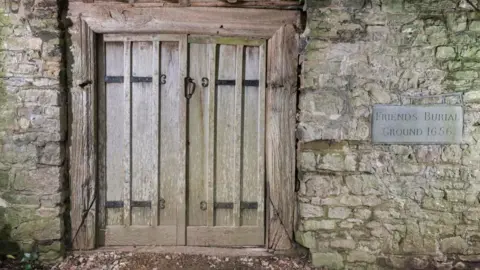Quaker burial ground recognised for its importance
 PA
PAOne of the earliest Quaker burial grounds in England has been recognised for its historic importance.
The Department for Culture, Media and Sport has granted the 17th century site at Lower Hazel in South Gloucestershire Grade II listed status, on the advice of Historic England.
Dating from 1656, the burial ground has been in continuous use for 365 years.
Ross Simmonds from Historic England said: "The burial ground at Lower Hazel helps us understand the experiences of nonconformist communities during times of persecution in the 17th century, and remains important to the community today."
Quakers believe there is something of God in everybody and that each human being is of unique worth, value all people equally, and oppose anything that may harm or threaten them.
The Olveston area was an important place in the early years of Quakerism, as preachers John Audland and John Camm addressed a large group of farmers on Elberton Green in 1654.
George Fox, a founder of Quakerism, visited Olveston in the 1660s to help establish monthly meetings, and spent his honeymoon in the village in 1669.
The land was provided through a bequest from John Smith of Lower Hazel, with the first documented burials taking place in 1657.

Roger Sturge, a Quaker from Bristol, said his seventh great-grandfather, Joseph Sturge, was buried at the "beautiful" site in 1669.
"So my family have been buried here through almost its entire history, when my own time comes, I plan to join Joseph and his descendants here.
"It is a wonderful tranquil place, where so many have worshipped over the centuries and still worship today.
"I hope the listing means more people will experience its calm and be inspired to find out more about the Quakers," he added.
In line with Quaker principles, early burial grounds tended to be simple, functional enclosures with minimal landscaping and planting, and plain funerary monuments reflecting humility in death.
The Quaker Burial Ground at Lower Hazel is one of several historic sites associated with Quakerism in South Gloucestershire to be granted listed status.
Follow BBC Bristol on Facebook, X, and Instagram. Send your story ideas to us on email or via WhatsApp on 0800 313 4630.
